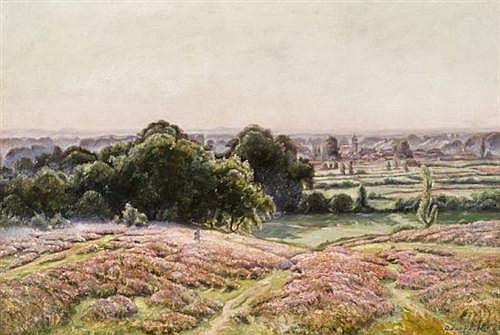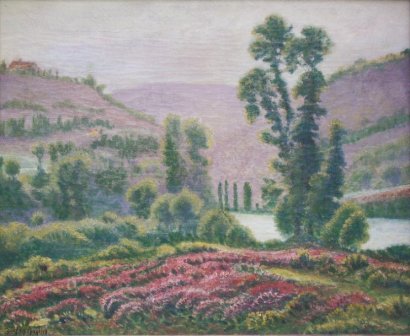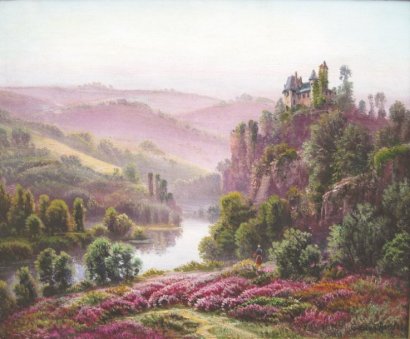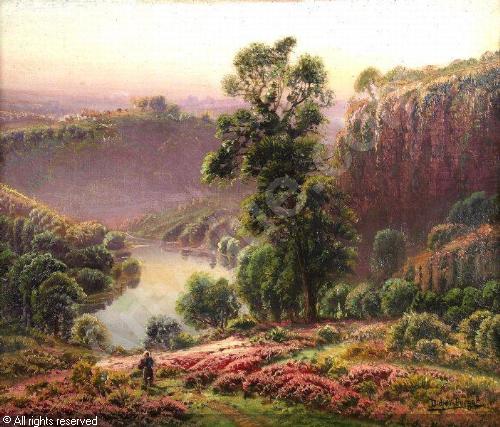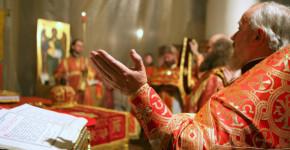Heather honey, Scottish ale
The legend of heather honey, sung in songs, ballads and even in animated films, has several millennia, according to some researchers. So long ago that no one can tell you the exact dates, the Picts tribe lived among many other tribes on the territory of present-day Scotland. It was the Picts who became famous for their rock inscriptions - hence the concept of “pictogram” - and the recipe for Scottish ale.
Heather honey legend
When the Scottish tribes came to the lands of the Pictish people (and this happened in the fifth century AD), the Scottish (sounds rude, but according to legend, very appropriately) king, wishing to know the recipe for the then not quite Scottish ale that delighted him, which the locals the inhabitants called it “heather honey”, ordered the leader of the tribe to tell how the Picts prepare it.
 However, the leader of the Picts turned out to be a wise psychologist, a courageous man and a faithful ruler of his people. He deceived the king by saying that he would reveal the secret of making heather honey after the death of his son. The boy was thrown into the sea, and his father, fearing that the young man would betray, under the torture that threatened them both, the secret of preparing the drink coveted by the Scots, rushed at the king and pulled him into the abyss. Thus the leader of the Picts perished, and thus the recipe for making Scottish ale, which had thousands of years of history, was lost.
However, the leader of the Picts turned out to be a wise psychologist, a courageous man and a faithful ruler of his people. He deceived the king by saying that he would reveal the secret of making heather honey after the death of his son. The boy was thrown into the sea, and his father, fearing that the young man would betray, under the torture that threatened them both, the secret of preparing the drink coveted by the Scots, rushed at the king and pulled him into the abyss. Thus the leader of the Picts perished, and thus the recipe for making Scottish ale, which had thousands of years of history, was lost.
This harsh legend was told by R. Stevenson in his famous ballad. In Russian, it is known in the translation of S.Ya. Marshak:
Heather drink
Forgotten a long time ago.
And he was sweeter than honey,
Drunker than wine
It was boiled in cauldrons
And the whole family drank
Little meads
In caves underground.
The king of Scotland has come
Merciless to enemies
He drove the poor Picts
To the rocky shores.
On the heather field
On the battlefield
Lying alive on the dead
And the dead - on the living.Summer has come in the country
Heather blooms again
But no one to cook
Heather honey.
In their cramped graves,
In the mountains of my native land
Little meads
They found shelter.
The king rides down the slope
Over the sea on horseback
And the seagulls fly by
Along with the road.
The king looks sullenly:
"Again in my land
The honey heather blooms
We don't drink honey!
But here are his vassals
Noticed two
The last honey cooks
Survivors.
They came out from under the stone
Squinting at the white light -
Old hunchbacked dwarf
And a boy of fifteen.
To the steep sea
They were brought in for interrogation.
But none of the prisoners
Didn't say a word.
The king of Scotland sat
Without moving, in the saddle.
And the little people
They stood on the ground.
Angrily, the king said:
"The torture of both awaits,
If you don't tell me, damn it
How did you prepare honey!
The son and father were silent,
Standing at the edge of a cliff.
The heather rang over them,
Waves rolled into the sea.
And suddenly a voice rang out:
"Listen, Scottish king,
talk to you
Eye to eye let me!
Old age is afraid of death.
I'll buy life with change
I'll give you a secret!" —
The dwarf told the king.
His voice is sparrow
Sounded sharp and clear:
“I would have given away the secret long ago,
If the son did not interfere!
The boy does not care about life
Death doesn't matter to him...
I sell my conscience
It will be conscientious with him.
Let him be tied tightly
And thrown into the abyss of water -
And I will teach the Scots
Cooking old honey! .. "
Strong Scottish Warrior
Boy tightly tied
And threw it into the open sea
From coastal cliffs.
The waves closed over him.
The last scream died...
And echoed him back
From the cliff, the old father:
“I told the truth, Scots,
I expected trouble from my son.
I did not believe in the resilience of the young,
Not shaving beards.
And I'm not afraid of a fire.
Let me die with me
My holy secret
My heather honey!"
Readers of the older generation may remember the same harsh cartoon soviet film based on this ballad. Those who do not remember or want to refresh their memory can do it - there is a video at the end of the article.
In the meantime, you can listen to the song "Heather Honey":
And we will return to the legend. And we will analyze it from the point of view of quite serious scientific research.
From the history of Scottish ale
The history of this drink is inseparable from the history of the people who created it. So, the people of the Picts are one of the most mysterious. In legends dating back hundreds of years, this tribe is associated with a dwarf people who lived in caves. In some ways, the Picts in these ancient texts resemble elves, similar to them in their bizarre features and strange behavior.
The Picts were ruled by their king, one of whose constant problems was to repel the next attack of their neighbors. And the neighbors of the Picts were the tribes of the Anglo-Saxons. It was believed that the Picts had magical abilities, which were maintained thanks to a mysterious potion - the same heather honey.
Archaeologists excavating at one of the Neolithic sites found the remains of pottery containing traces of a drink obtained by fermentation from heather. So the legends have a very serious background.
But the question of bloody battles to the last person from the Picts tribe, most likely, is not correct in its very formulation. The fact is that the Scottish tribes that came to the land of the Picts were not conquerors, but settlers. British historians tend to think that the Scots are descended from both the Picts and the Irish. So the assimilation of two kindred peoples, which is usual in the historical perspective, took place.
It must be assumed that the loss of the Scotch ale recipe did not occur during the mixing of these peoples, but later, perhaps at the beginning of the eighteenth century, when Scotland was deprived of its national customs as a result of the conquest of these lands and, accordingly, the peoples living on them, by England. It was then that it was ordered to prepare ale only with the use of malt and hops.
However, the Scots resisted these prohibitions, preserving their traditions in the mountainous regions, which were difficult for the conquerors - the British. Actually, these places were the historical homeland of the Picts tribe.
The recipe for heather honey was discovered in 1986 thanks to Bruce Williams and a certain mysterious lady who visited his shop at his own brewery. The lady asked Williams to help her decipher the recipe for an old drink written in Old Scots. However, having learned that according to this recipe it takes more than seven hours to prepare a drink, the lady abandoned her idea, limited herself to purchasing a regular brewing kit, and left the recipe itself in the store.
The first brewery to brew heather honey revived from oblivion was the small West Highland Brewery, located in Argyll. When volumes increased, the Scotch ale brewers moved to Alloa, to the larger production of Macleay & Co. By the way, both the first and second breweries are located on the very lands that the Picts tribe lived from time immemorial.
And since the beginning of our century, old beer has been produced by Heather Ale Ltd at a factory located near Glasgow, already on an industrial scale.
Features of the Scottish ale recipe
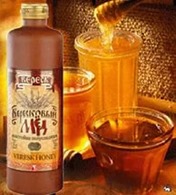 First of all, it should be noted that in ancient times the malt used to make heather honey was boiled separately from the tops of the twigs of the plant until a must was obtained. Later, freshly picked heather flowers were added to it. Then all this mass was left for fermentation for almost two weeks. During this time, the drink gradually became more saturated and dark, acquired a mild taste and amber color.
First of all, it should be noted that in ancient times the malt used to make heather honey was boiled separately from the tops of the twigs of the plant until a must was obtained. Later, freshly picked heather flowers were added to it. Then all this mass was left for fermentation for almost two weeks. During this time, the drink gradually became more saturated and dark, acquired a mild taste and amber color.
To revive the old drink, Williams had to make truly heroic efforts: he took a long time to select the right time to collect heather for the preparation of Scottish ale, diligently dealt with the peculiarities of its pre-treatment. And I found out that only the tops of the plant should be used, since an almost imperceptible cohabitant appears on the lignified stalks of heather - moss, which, being present in the finished drink, gives an undesirable aftertaste and a slight effect of the drug. Perhaps it was precisely because of this that the ancient heather honey had the same euphoric effect on the ancient tribes, because of which the Scots - all according to the same legends - felt a complete fusion with nature.
This is how the famous Scottish ale came to us in such a difficult way. And now - the promised animated film "Heather Honey":
Lesson topic:Robert Louis Stevenson. Ballad " heather honey».
Lesson Objectives:
Personal: to know information about the life of the writer, the events that are told in the ballad.
Meta-subject: the ability to highlight the main thing in the text; answer the questions posed.
Subject: to understand what character traits the author glorifies; be able to find signs of the ballad genre in R. L. Stevenson's Heather Honey.
Lesson type: Lesson of reading and discussion of the work.
During the classes:
"I believe everyone will be there,
Where he aspires all his life.
R.L. Stevenson.
Organizing time
Knowledge update
Work on the topic of the lesson
Teacher's word.
R.L. Stevenson was born on November 13, 1850 in Scotland, in the city of Edinburgh. The parents of the future writer were wealthy people. Stevenson's grandfather and father were building lighthouses. His father took him to work. Therefore, young Robert was attracted by everything that was connected with the sea. The boy liked to sit on the shore for a long time, he watched the waves for hours, listened to stories about shipwrecks, about various sea adventures and dreamed. All this nourished the boy's imagination and awakened a love for native land, to the history of Scotland: bright, contrasting, gloomy, full of romanticism and tragedy.
The life of a writer was not easy. By inheritance from his mother, Robert got a serious illness - tuberculosis, and he was bedridden for a long time. This is a very terrible, at that time, incurable disease.
But… dreams about travel, about the sea, which seemed to be unrealizable, helped to overcome the disease: a pen and paper came to the aid of the boy.
Robert Lewis tried to write down everything he saw on paper.
Robert Louis Stevenson known to readers around the world as the author of the novel "The Island treasures"(1883), which for more than a hundred years has remained a favorite book of children and adolescents. Stevenson also wrote many other novels, but it was Treasure Island that made his name so popular. Even as a child, the future writer surprised everyone with the richness of his imagination and the ability to tell unusually interesting stories.
At the insistence of his father, Stevenson studied for several years at the engineering, and then at the law faculties of the University of Edinburgh, and even received the title of lawyer. But the love of writing was stronger.
It was very difficult to overcome the resistance of his parents, who wanted him to continue his career as a lawyer, but young man it succeeded. He becomes a writer.
“I longed for life, I longed for adventure, with a great effort of will, I practically conquered the disease. Love for the Motherland and its history gave me strength. I fought and lived,” he wrote in his memoirs.
Robert Stevenson constantly had to experience the blows of fate and fight for his existence.
Listen to what the doctor prescribed to the young writer when he was only 24 years old: “Absolute peace, no excitement, not even pleasant; don't eat too much, don't drink too much, don't laugh too much; you can write a little, really a little, talk very little and walk as little as possible.
But Stevenson did everything the other way around: “no worries” was written in the contraindications, and he constantly got into different stories, the doctor forbade him to move a lot, and he swam in a boat and traveled on foot along different countries, and was able to build a house on the island of Samoa, which is located in the Pacific Ocean.
Stevenson writes: “For 14 years I did not feel healthy for a single day, I woke up sick and went to bed exhausted, and all this time I worked, not deviating from my duty and my intended path. I wrote in bed, I wrote when my throat was bleeding, I wrote when I was chilled, I wrote when I was coughing, I wrote when I was dizzy from weakness, and it seems to me that I honorably lifted the glove thrown to me by fate, and won the battle with life.
Stevenson lived with his family for four years on the island of Samoa, and the fact that the local natives loved and respected him is evidenced by the following fact: in order to bury him, on purpose - in complete silence by vow - they voluntarily cut a path through the rainforest to the top of the the high mountain of Weah. And there, on the gravestone, were the lines from Stevenson's poem:
Under starry sky, in the wind
I will choose the last place.
I lived happily, I will die easily.
And ready to go to the grave.
On the gravestone write this:
“Here he wanted to leave a sign,
He returned from the sea, a sailor came,
And the hunter returned from the hills.”
We met such a man of difficult fate. Stevenson wrote many books, more than 30 volumes have been published since his death. The most famous works were Treasure Island, Black Arrow, Stolen.
Among small genres, special popularity has gained ballad "Heather honey".
Ballad work.
Once upon a time they lived in Scotland. It was an extraordinary people. According to the legend, they were engaged in the manufacture of honey, so sometimes they were also called honey cooks. Their honey was not simple, but heather, i.e. boiled from heather - an unusual flower that grows in Scotland.
There are whole thickets of this plant.
We listen to the audio recording of the ballad.
HEATHER HONEY.
Heather drink
Forgotten a long time ago.
And he was sweeter than honey
Drunker than wine
It was boiled in cauldrons
And the whole family drank
Little meads
In caves underground.
The king of Scotland has come
Merciless to enemies
He drove the poor Picts
To the rocky shores.
On the heather field
On the battlefield
Lying alive on the dead
And the dead - on the living.
_______
Summer has come in the country
Heather blooms again
But no one to cook
Heather honey.
In their cramped graves,
In the mountains of my native land
Little meads
They found shelter.
The king rides down the slope
Over the sea on horseback
And the seagulls fly by
Along with the road.
The king looks sullenly:
"Again in my land
The honey heather blooms
We don't drink honey!
But here are his vassals
Noticed two
The last honey cooks
Survivors.
They came out from under the stone
Squinting at the white light -
Old hunchbacked dwarf
And a boy of fifteen.
To the steep sea
They were brought in for interrogation.
But none of the prisoners
Didn't say a word.
The king of Scotland sat
Without moving, in the saddle.
And the little people
They stood on the ground.
Angrily, the king said:
"Torture awaits both,
If you don't tell me, damn it
How did you prepare honey!
The son and father were silent,
Standing at the edge of a cliff.
The heather rang over them,
"Listen, Scottish king,
talk to you
Eye to eye let me!
Old age is afraid of death.
I'll buy life with change
I'll give you the secret!"
Sounded sharp and clear:
"I would have given away the secret long ago,
If the son did not interfere!
The boy does not care about life
Death doesn't matter to him...
I sell my conscience
It will be conscientious with him.
Let him be tied tightly
And thrown into the abyss of water -
And I will teach the Scots
Prepare old honey!.."
Strong Scottish Warrior
Boy tightly tied
And threw it into the open sea
From coastal cliffs.
The waves closed over him.
The last scream died...
And echoed him back
From the cliff, the old father:
"I told the truth, Scots,
I expected trouble from my son.
I did not believe in the resilience of the young,
Not shaving beards.
And I'm not afraid of a fire.
Let me die with me
My holy secret
My heather honey!
Consolidation of the studied material.
Vocabulary work.
The nobleman is here: the person who leads the country, the ruler, the ruler.
The abyss, nurt, nurty - whirlpool.
Guys, determine the theme and the main idea of the work.
Subject: The death of the last people of the small nation of meads.
The main idea: the struggle for independence and freedom against the conquerors.
Conversation
Teacher: Pitiless
How did father and son die? Why did the old man decide to deceive the Scots?
Teacher: I was afraid that my son would not endure the torture, wishing for him an easier and faster death than at the stake.
Why is heather honey a "holy secret" for an old man?
Teacher: Because these are their traditions, if you pass them on, it means betraying your history, your people.
In the name of what does the old man accomplish his feat?
Uch-k: In the name of preserving the memory of their ancestors, in the name of loyalty to their homeland.
- "Heather honey" - a ballad. Why do you think Stevenson turned to this genre?
Teacher: He wrote about the legendary historical times of Scotland, imitating the folk epic. It seemed to him easier to express the idea of loyalty to the Motherland in such a genre as a ballad.
We have already mentioned today what a ballad is. Find the features of the ballad in Heather Honey.
Uch-k: A historical plot, a tragic episode in the history of the war, a tragic episode - the death of the last Picts, the heroes are true patriots, an element of mystery - a honey recipe that dies with the heroes; the characters of the characters are revealed in a dramatic dialogue, the emotional sympathy of the author; landscape beginning and landscape ending.
V. Summing up the lesson. Reflection.
Finish the sentence:
After reading the ballad, I came (came) to the conclusion ...
The most interesting thing about the ballad is...
In place of the old pict, I would ...
So what does this piece make you think about?
Teacher: About courage and courage, about the cruelty of the heart, about keeping a holy secret, etc.
The same thoughts and feelings owned Stevenson when he first heard the story of the conquest of the Picts, and then shifted it into a literary way. So that the memory of the courageous and courageous Picts lives in the hearts of people, so that everyone thinks about such vices as cruelty, anger, malice, what they can lead to.
D/Z. Write an essay on the topic:
My perception of Stevenson's ballad "Briar Honey".
In fact, having been in Scotland, I was pleasantly surprised that, thank God, they are still brewing and different ways. For example, here is the recipe:
For "Heather Honey" you will need: 20 g flowers, 500 g sugar, 1 liter water.
Pour the flowers with boiling water, leave for a day, strain, add sugar, bring to a boil and pour into glass jars.
VERESK drinks:
1) Boil 5 g of dried flowers in 1 liter of water for 3 minutes, discard the grass, add 80 g of honey, stir.
2) 40 ml of heather syrup, 20 g of currant leaf, 300 ml of water. Boil currant leaves for 7 minutes, strain, then add syrup. Drink better chilled.
(Artwork by artists William Didier-Pouget, Gaston Vincent Anglade, and Rex Preston is used to illustrate this article, see more about the artists in the ProArt community.)

Heather is, first of all, a magnificent honey plant with a pleasant smell, grows in the tundra, pine forests, peat bogs, burnt areas, sands. As a rule, this honey plant is found in Ukraine, the countries of Western Europe, Siberia, the European part of Russia, the Azores and Asia Minor, even in the north and west of Africa. However, the largest moorlands (which are huge thickets formed with certain other species of the genus Eric) are found in Scotland. The moorlands there occupy approximately 75% of the moorlands worldwide.
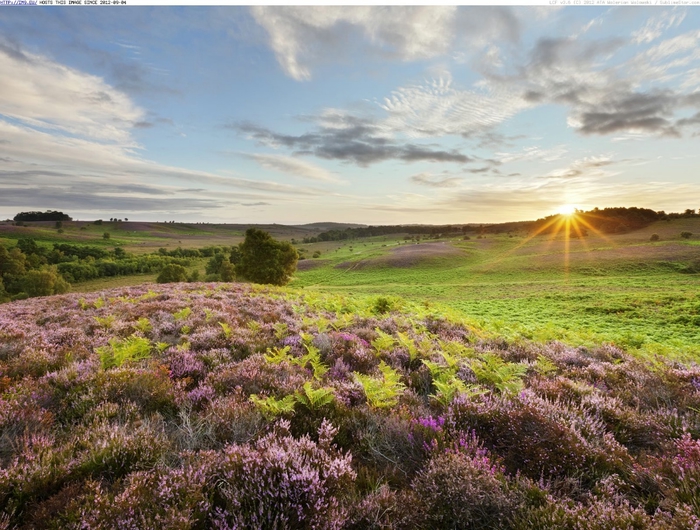
Someone likes the taste of heather honey, someone rejects its unusual bitterness. However, true connoisseurs in the UK appreciate this honey so highly that the name “honey Rolls-Royce” has stuck to it.

The indescribable aroma is the first thing that attracts in heather honey. At the same time, its taste is tart and even slightly bitter. Remains after its use and quite a strong aftertaste. The color of heather honey is dark yellow up to yellow-red, and when crystallized, it acquires a reddish-brown hue. Some even compare heather honey to toffee in terms of richness of taste. The taste of this honey becomes stronger and more expressive during long-term storage.

Heather honey contains a large amount of proteins (about 2%), which is also its difference. This contributes to the fact that during long-term storage it does not crystallize, but acquires a jelly-like form. However, when stirred, honey again becomes liquid, but over time it thickens again.
"Heather Honey" (translated by Valery Rastorguev - naturally it is impossible to surpass the melodiousness of the narration of either Stevenson or Marshak - somehow it turned out clumsily, so I will only give an excerpt, but the guy tried :-).
In Scotland, honey heather grew on the slopes of the mountains.
And every resident firmly believed that he gave them strength.
When a precious drink that was more invigorating than wine
They cooked, knowing the price, then the whole country rejoiced.
But then one day it happened, the King decided to find out the secret,
Went to war, not knowing mercy, there is no mercy for honey cooks.
At the root of a small people, he exterminated without regret.
And the heather is already in bloom, blood-red as a sign.
And it is filled with strength, ready to shed, living nectar.
But only corpses and graves, in almost every one there is a mead brewer.
I am old and let him die with me, forever in eternity, melted, fragrant honey from Heather.
Copyright: Valery Rastorguev, 2012.
The area of Dalriada was cleared from the Picts during the "Scottization" of Scotland, but the tradition of making heather ale continued to live, especially in the mountains of Scotland (Highlands, Highlands). By the 12th century, the lands of the Picts and Dalriada united and the country of Scotland appeared, the Gaels called it "Alba", and heather ale became a familiar drink in the clans.



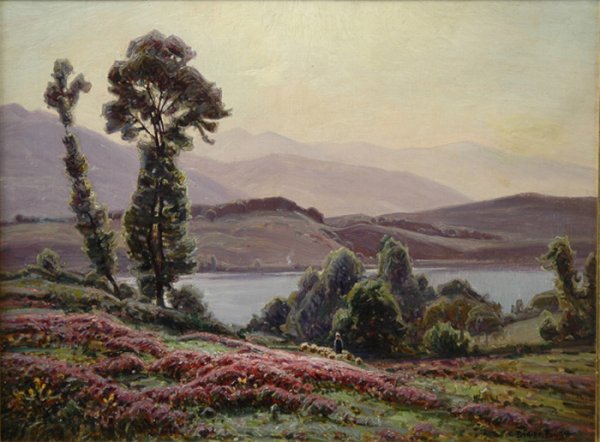

Leann Fraoch(pronounced "lyan fray oogh" with a soft "oogh", lyan freyuh) in Gaelic (the language of the Scottish Celts) means heather (fraoch) beer. Bell heather, also called Bonnie bells (Erica tetralix, Marsh Heather and E. cinerea), has bell-shaped flowers in white to purple, blooming from April to June. The plant Ling heather or Broom heather (Calluna vulgaris, Heather) has small, bud-like flowers that come in white, red or purple and bloom from August to September.
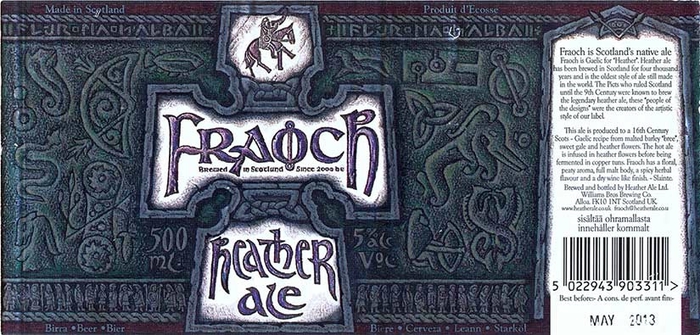
| For brewing needs, use only the top five centimeters of the plant, within 36 hours of harvest, or must be kept below 38 degrees F (3 degrees C) because it loses its valuable flavor. Moss (fog) grows on a woody stem inside the heather plant, not near the flowers, and contains wild yeasts. Fog has some narcotic properties, which have been excluded from commercial recipes. Moss grows deep in the stems, but it flies in the air when the flowers are picked. It is a light white powder that can be easily removed by rinsing the plants in cold water. Heather ale is without a doubt Scotland's oldest brewing heritage. The drink was prepared as follows: |
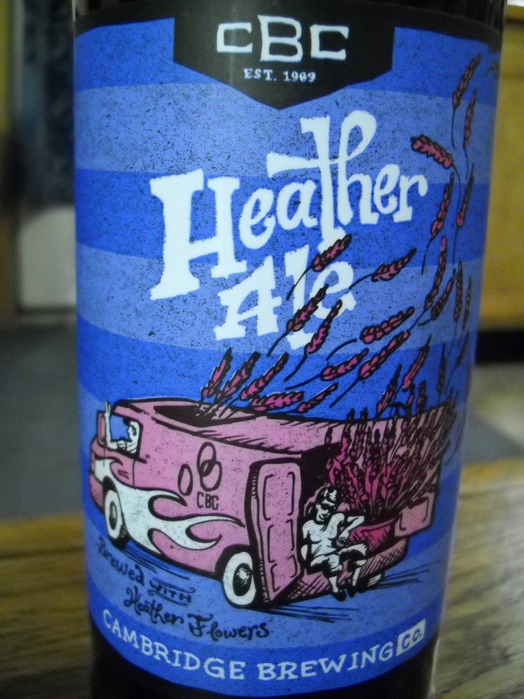 |
 |
First, a mash was made from Scottish ale malt, wort was brewed with flowering heather tops, then its surface was covered fresh flowers heather, left to cool and fermented for 12 days until the heather turns black. Ale was drunk directly from a container called a cran (barrel), in which a hole for a tap was made a quarter of the height. It is an amber, lightly carbonated ale with a mild bitterness, a strong, oily body and a wine-like taste, called Scotch Burgundy by the French during the Auld Alliance in the 18th century, and Scotch Malvasia by the British. |
Here is a real commercial heather ale recipe from Glenbrew, BruceWilliams, 736 DumbartonRd., GlasgowG116RD:
HEATHER ALE
Components for 5 gallons (20 liters)
6 2/3 pounds (3 kilograms) ground Scottish ale malt, or 6 pounds (2.7 kilograms) American two-row malted barley and 10.5 ounces (300 grams) amber malt (crystal or Cara-type)
12 2/3 cups (3 liters) lightly pressed heather flower tops
3/10 ounce (8 grams) Irish moss (10 minutes)
2 3/5 gallons (10 liters) soft water Lager yeast
1/2 to 3/4 cup corn sugar (for carbonation)
Initial density: 1.048 Final density: 1.011
Mash the malt at 153 degrees F (67 degrees C) for 90 minutes. Rinse to collect 5.25 gallons (20 liters). Add about half a gallon (2 liters) of lightly pressed heather tops and cook over high heat for 90 minutes.
Pass the hot wort through a sieve filled with 2 cups (0.5 liters) of heather tops into a fermentation tank. Let cool and ferment at 61 degrees F (16 degrees C) for seven to 10 days. I recommend using lager type yeast. I originally used Scotch ale yeast, but over the years of cold slow fermentation, a bottom-fermenting race has developed. When the gravity reaches 1.015, usually on the fifth day, take 1/2 gallon (2 liters) of ale, add 2 cups (1/2 liters) of heather flowers and heat to 158 degrees F (70 degrees C). Cover and let rest for 15 minutes, then return to the fermenter.
![]()
And finally, the text of Stevenson's original ballad with voice acting in the video. And one more thing, (by the way) about how useful it is to be able to read works in the original - in the English edition of the Ballad Stevenson himself mentioned that Picts "little people"(English dwarfish folk) were not actually destroyed, but assimilated by the Scots in the 9th-10th centuries.
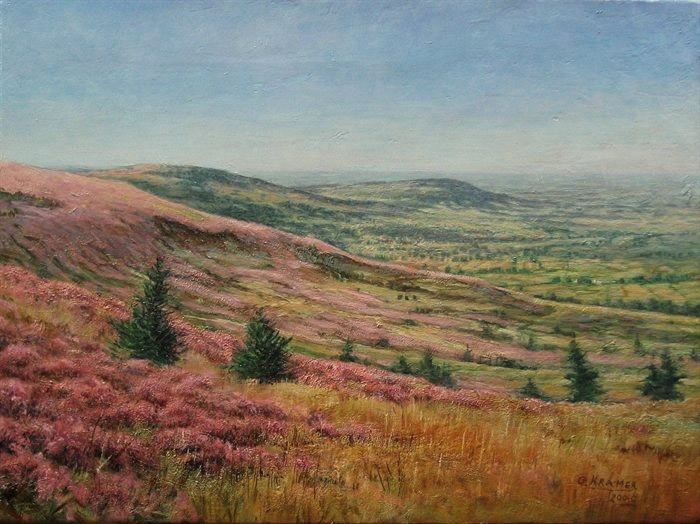
|
Heather Ale: A Galloway Legend by Robert Louis Stevenson 1880 From the bonny bells of heather, They brewed a drink long blue was sweeter far than honey, was stronger than wine. They brewed it and they drank it And lay in blessed sound For days and days together In their dwellings underground. There rose a King in Scotland, A fell man to his foes, He smote the Picts in battle, He hunted them like roes. Over miles of the red mountain He hunted as they fled And strewed the dwarfish bodies Of the dying and the dead. summer came in the country, red was the heather bell, But the manner of the brewing Was none alive to tell. In graves that were like children's On many a mountain's head, The Brewsters of the Heather Lay numbered with the dead. The king in the red moorland. Rode on a summer's day; And the bees hummed and the curlews Cried beside the way. The king rode and was angry, Black was his brow and pale to rule in a land of heather, And lack the Heather Ale. Never a word they spoke: A son and his aged father Last of the dwarfish folk. The king sat high on his charger, He looked down on the little men; And the dwarfish and swarthy couple Looked at the king again. Down by the shore he had them: And there on the giddy drink "I will give you life ye vermin, For the secret of the drink." There stood the son and father And they looked high and low; The heather was red around them, The sea rumbled below. And up spoke the father, Shrill was his voice to hear: "I have a word in private, A word for the royal ear. "Life is dear to the aged, And honor a little thing; I would gladly sell the secret" Quoth the Pict to the King. His voice was small as a sparrow's, And shrill and wonderful clear: "I would gladly sell my secret, Only my son I fear. "For life is a little matter, And death is naught to the young; And I dare not sell my honor under the eye of my son. Take him, O king, and bind him, And cast him far in the deep; And it's I will tell the secret That I have sworn to keep." neck and heels in a thong, And a lad took him and swung him, And flung him far and strong And the sea swallowed his body, Like that of a child of ten; And there on the cliff stood the father, Last of the dwarfish men. "True was the word I told you: Only my son I feared; For I doubt the sapling courage, That goes without the beard. But now in vain is the torture, Fire shall not avail: Here dies in my boss The secret of the Heather Ale." Translation by S. Marshak (1941) |

|
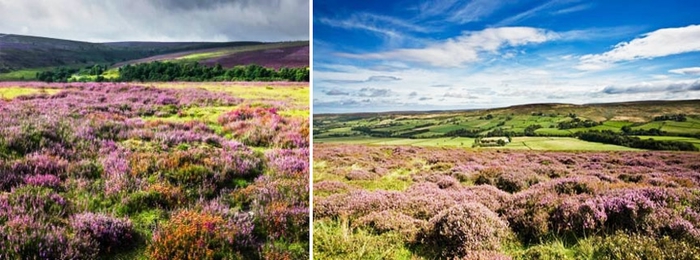
Heather drink Forgotten long ago. And he was sweeter than honey, Drunker than wine.
They boiled it in cauldrons And drank it with the whole family Little mead-makers In caves underground.
The king of Scotland came, Merciless to the enemies, He drove the poor Picts To the rocky shores.
On the heather field, On the battlefield, Lying alive on the dead And dead on the living.
Summer has come in the country, Heather is blooming again, But there is no one to cook Heather honey.
In their cramped graves, In the mountains of their native land, Little mead-makers Have found shelter for themselves.
The king rides up the slope Above the sea on horseback, And next to him the seagulls soar On a par with the road.
The king looks sullenly: "Again in my land The honey heather blooms, But we don't drink honey!"
But then his vassals Noticed two of the last meaders, Survivors.
They came out from under the stone, Squinting at the white light, - An old humpbacked dwarf And a boy of fifteen.
They were brought to the steep seashore for interrogation, But not one of the captives uttered the Word.
The Scottish king sat, Not moving, in the saddle. And the little people were standing on the ground.
Angrily, the king said: "Torture awaits both, If you don't tell me, damn it, How did you prepare the honey!"
The son and father were silent, Standing at the edge of the cliff. Heather rang over them, Waves rolled into the sea.
Old age is afraid of death. I'll buy my life by treason, I'll give out the cherished secret!" - The dwarf said to the king.
The boy does not feel sorry for life, He does not care about death ... I will sell my conscience I will be ashamed with him.
Let him be bound tightly And thrown into the abyss of water - And I will teach the Scots How to cook ancient honey! .. "
A strong Scottish warrior tied the boy tightly and threw him into the open sea.
From coastal cliffs.
From the cliff, the old father:
The waves closed over him. The last cry froze ... And he answered with an echo
From the cliff, the old father:
"I told the truth, Scots, I expected trouble from my son.
I did not believe in the stamina of the young, Not shaving their beards.
And I'm not afraid of a fire. Let me die with me
My holy secret is My heather honey!"

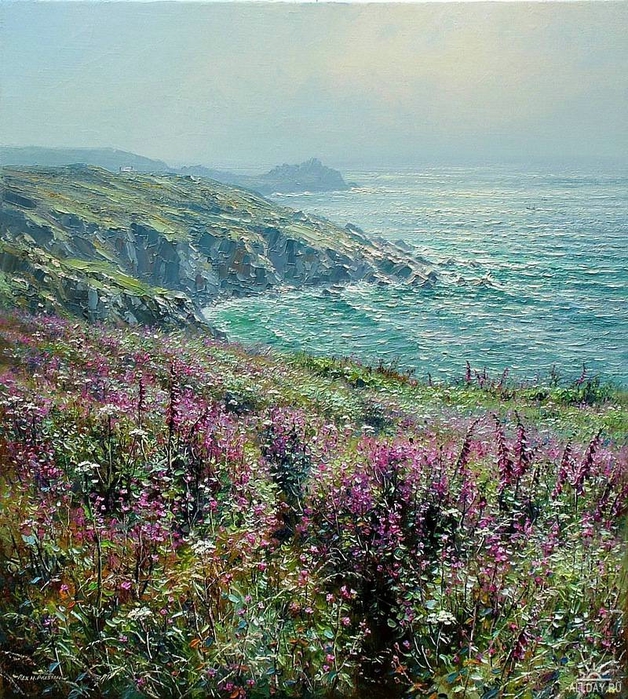
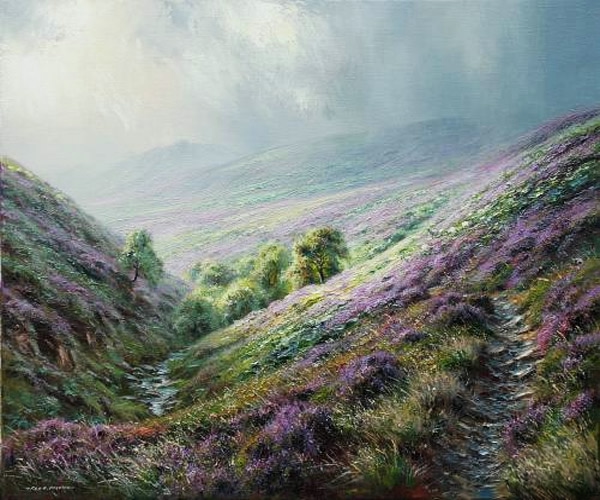
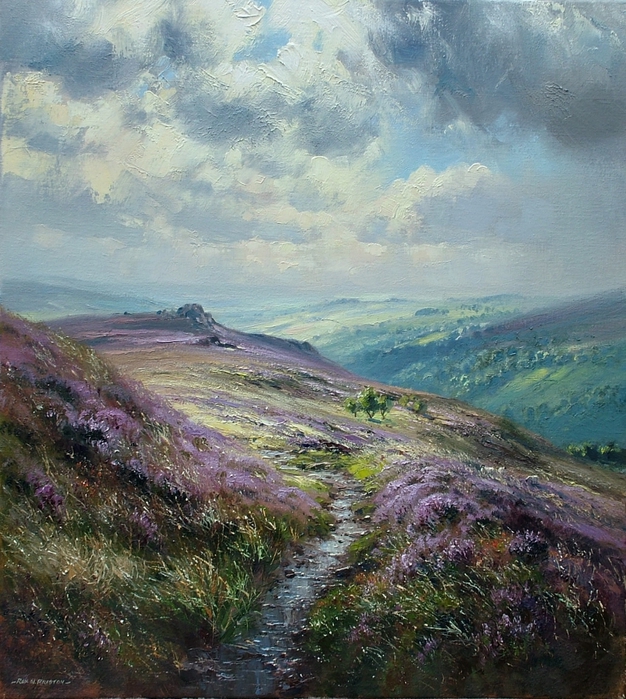

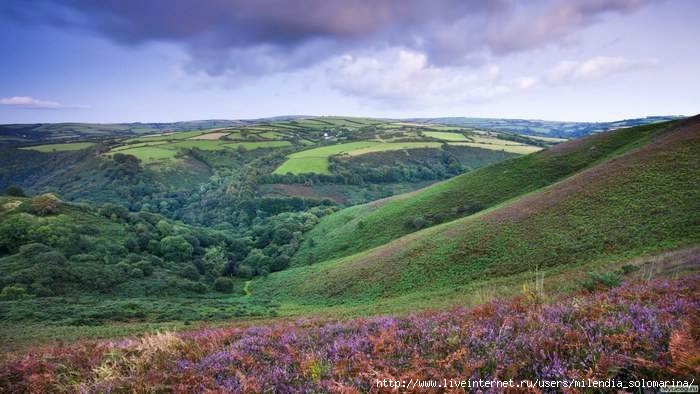
By the way, the very first translation into Russian of this ballad was made by Nikolai Chukovsky in 1939, but in comparison with Marshakovsky, who loved since childhood, both rhythm and style, in my opinion, lose great, judge for yourself, I give the full text:
Translation by N. Chukovsky: heather beer
(Scottish tradition)
| Ripped hard red heather And boiled from it Beer is stronger than the strongest wines, Sweeter than honey itself. They drank this beer, drank - And for many days afterwards In the darkness of underground dwellings They fell asleep peacefully. But the king of Scotland came, Merciless for enemies. He defeated the Picts And drove them like goats. On the steep crimson slopes He followed them And scattered everywhere Piles of dwarf bodies. Summer again, heather again. All in bloom - but how to be here, If the living do not know how Cooking a sweet feast? In children's little graves On the hill and beyond the hill Anyone who knows how beer is brewed Sleep forever dead. Here is the king of the crimson field Rides in the stuffy summer heat, Hears full bees buzz, The singing of birds over you. He is gloomy and dissatisfied - What could be sadder Rule the heather kingdom Don't drink sweet beer? Following him, the vassals gallop Through the heather Suddenly they look Behind a huge old stone Two dwarfs are sitting. Here they are chased and captured. Finally captured The last two dwarfs - A son and an old father with him. The king himself rides up to them And looking at the kids On clumsy, blackish, Frail little people. He leads them straight to the sea On the rock and says: "I I will give you life for a secret, The Secret of the Sweet Drink." Son and father stand and watch: The edge of heaven is wide, high, Heather is burning hot, The sea splashes at your feet. And the father suddenly asks "Let me be quiet Whisper with the king! Life for an old man is worth a lot, Shame is worth nothing. I would tell you a secret, Quietly whispers in silence: I would tell you a secret Only my son is scary to me. Life for the young is worth little, Death is worth nothing. I would open everything, but it's a shame, Shame on my son. You tie him tight And throw into the abyss of water! Then I will reveal the secret That kept my poor family." So they tied the son Tie your neck to your heels, And thrown right into the water In the waves of the raging tide. And the sea ate him And stayed on the rock Only the old father is the last Dwarf pict on the whole earth. "I was only afraid of my son, Because, you know, It's hard to feel trust To the beardless brave. Now prepare the torture I won't give anything. And forever die with me The Secret of the Sweet Drink." |
 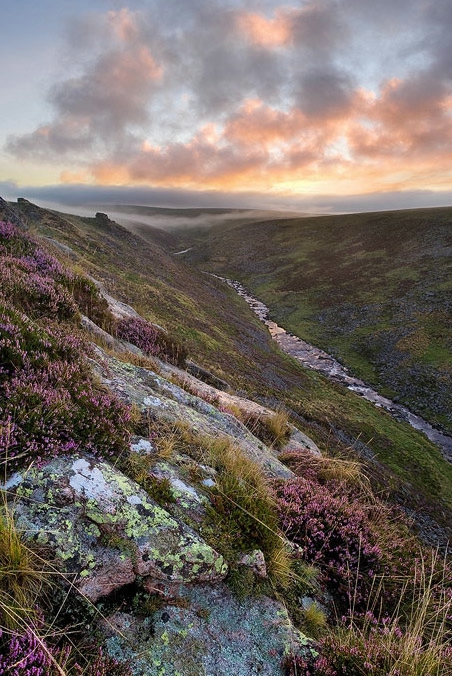 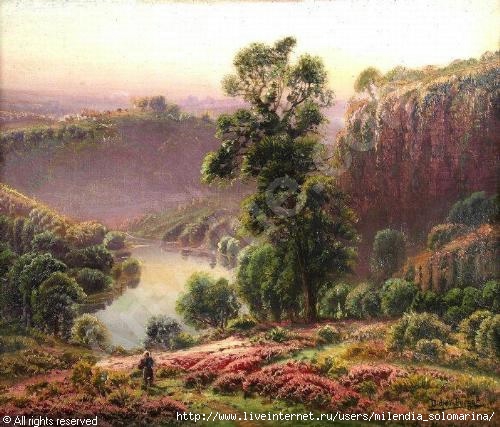 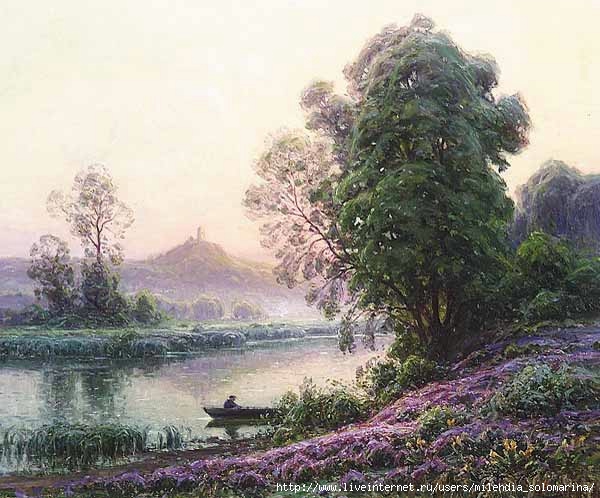 |
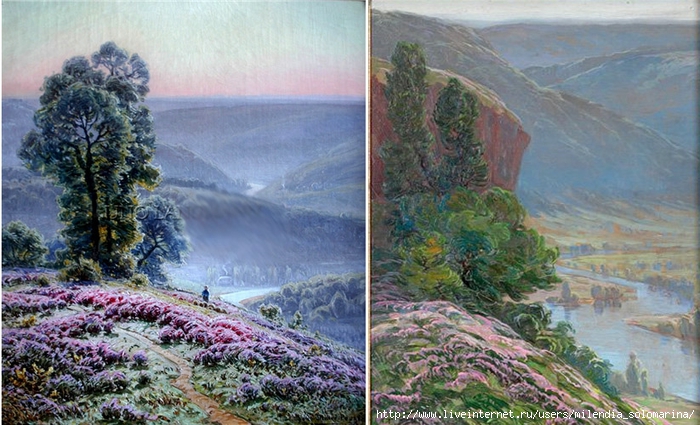
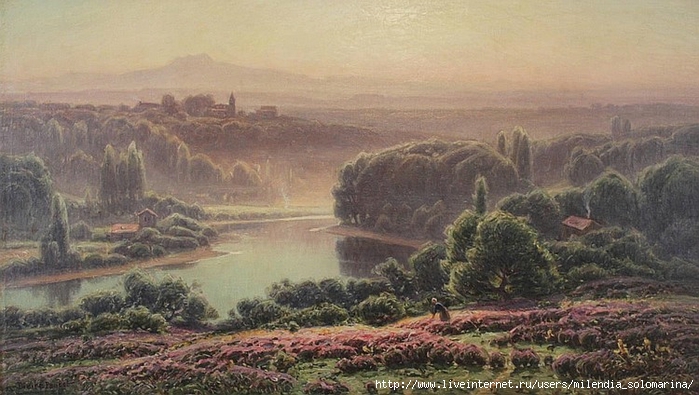
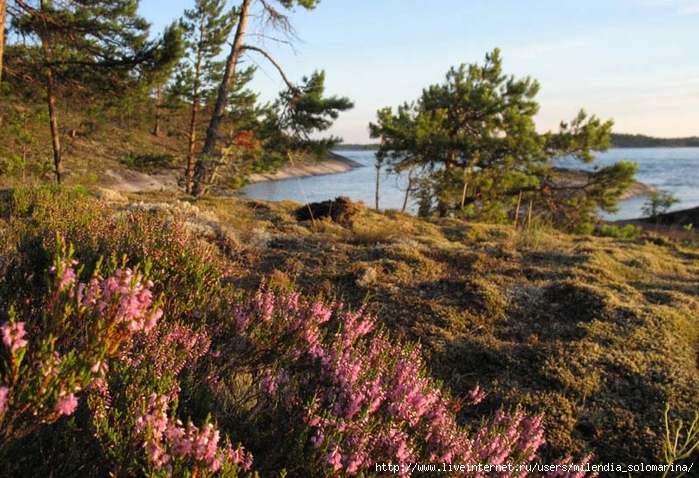
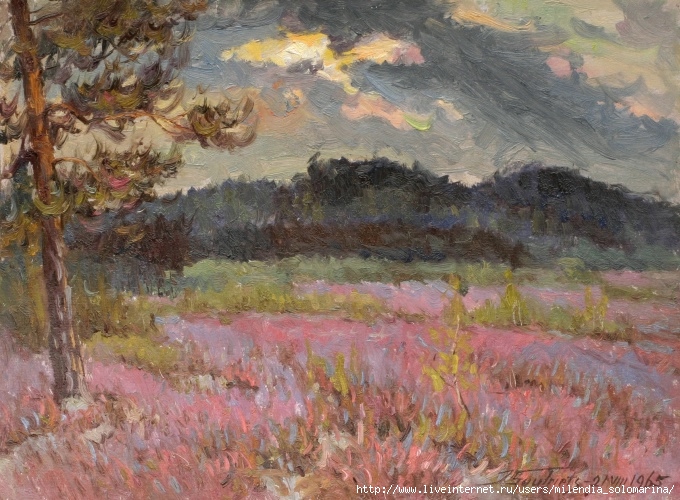
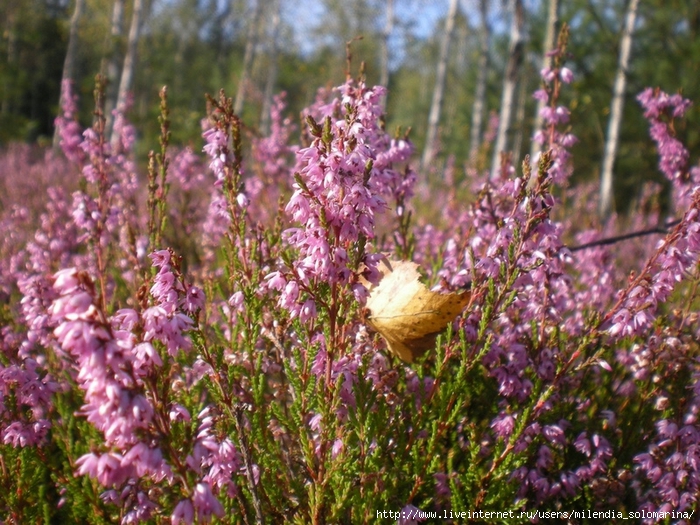
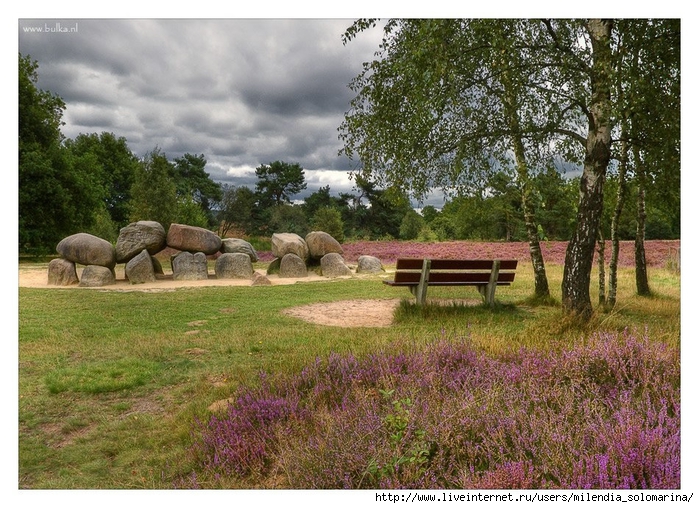
Song version video English language Heather Ale: A Galloway Legend
By Robert Louis Stevenson":

